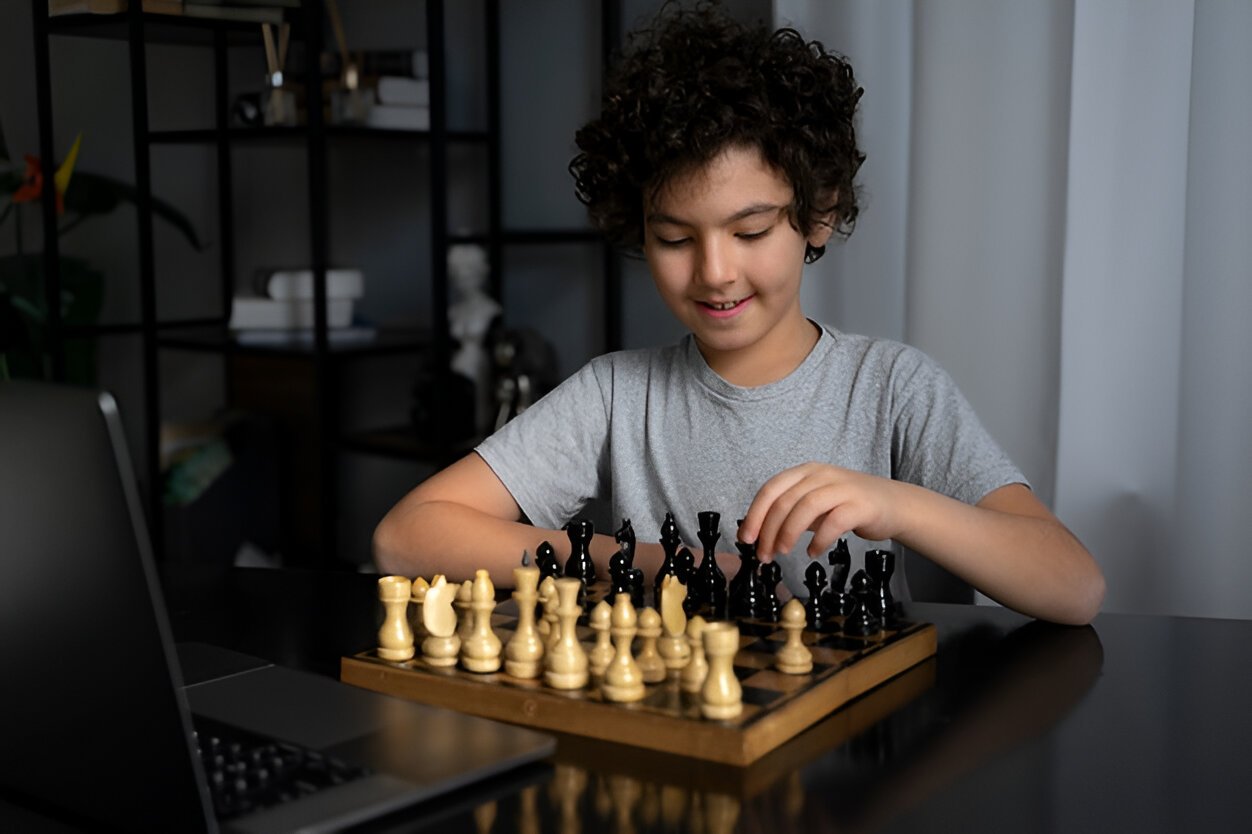In Africa, where only 1 in 5 children can read and solve basic math problems, education is not just a challenge; it’s a crisis. Yet, amidst this daunting reality, hope emerges from unlikely places. As a national chess master and the convener of Chess in Slums Africa, I’ve witnessed how educational games for kids like chess can transform lives. More than a game, it’s a powerful learning tool that empowers children, giving them identity, confidence, and cognitive skills to help break free from the chains of poverty.
This blog explores how educational games for kids such as chess are being used as frameworks for foundational learning across underserved communities. These games nurture problem-solving, critical thinking, and memory key skills that traditional education systems often fail to deliver at scale. The #BornToLearn campaign by UNESCO supports this mission, urging governments and communities to make foundational learning accessible through inclusive strategies like game-based learning. explore our Education Calculators, designed to help students and families make smarter academic decisions.
Chess as a Gateway to Learning
Chess is more than just moving pieces on a board. It builds problem-solving skills, critical thinking, patience, and concentration. These are foundational skills that can be transferred to subjects like math, reading, and logical reasoning skills that millions of African children are denied due to a lack of access to education.
Through Chess in Slums Africa, we create a learning environment where children feel safe, valued, and intellectually challenged. Here’s a breakdown of how chess aligns with core learning foundations:
Game Title: Ice Cream Detective
Grade Level: Preschool
Skill Focus: Listening & Comprehension
Learning Outcome: Builds early language skills and decision-making
Game Title: Long O Words Spelling
Grade Level: K–2
Skill Focus: Phonics
Learning Outcome: Improves spelling and word recognition
Game Title: Apostrophe Drop
Grade Level: 2–3
Skill Focus: Punctuation
Learning Outcome: Reinforces grammar and contractions
Game Title: Typing Words: Cooking Words
Grade Level: 2–5
Skill Focus: Typing & Vocabulary
Learning Outcome: Boosts typing speed and kitchen-themed vocabulary
Game Title: Dino Photoshoot
Grade Level: 3–5
Skill Focus: Figurative Language
Learning Outcome: Enhances reading with similes and metaphors
Game Title: Game of Bones
Grade Level: 6
Skill Focus: Grammar – Pronouns
Learning Outcome: Deepens understanding of compound pronouns
Game Title: Dino Skateboarding
Grade Level: 8
Skill Focus: Advanced Figurative Language
Learning Outcome: Mastery of puns, irony, and complex expressions
The Power of Identity and Expression
Many of the children we work with in Lagos, Nigeria, live in marginalized communities with limited exposure to learning opportunities. Through chess, we are not just teaching them how to win games; we’re giving them an identity. A child who once sold water on the street is now addressed as a chess champion. The board becomes their platform for expression and agency.
This transformation is vital in changing how society sees these children and how they see themselves. When children realize they are capable of thinking, solving, and leading, they begin to reimagine their future.
Support Through Digital Tools
For families and educators looking to enhance learning beyond the board, digital tools offer valuable reinforcement. Whether you’re planning your future or managing household goals, here are some free resources we recommend:
- Use our Mortgage Calculator to understand your long-term housing affordability as your family grows.
- Evaluate car purchases and repayment timelines using our Auto Loans tool.
- Track educational savings, scholarship plans, or general growth with the Investment Tracker.
These tools are practical, easy to use, and built for families who want to make informed financial and educational decisions.
#BornToLearn: A Campaign for Educational Justice
We are proud to join the #BornToLearn campaign initiated by the UNESCO GEM Report. This global initiative urges governments and stakeholders to give every child access to foundational learning, the ability to read, write, and understand basic math.
The campaign couldn’t be more timely. In Africa alone, 118 million children and youth are out of school. This represents not only a lost generation but also lost potential. Chess has shown us what can happen when just a handful of children are given the chance to learn. Imagine what could happen if every child had that opportunity.
Real Impact Stories
- Tunde, age 11, had never been to school. After just 3 months of learning chess, he was solving puzzles and reading simple English sentences.
- Amina, a 13-year-old girl from a slum community, became the youngest local chess champion in her district, gaining sponsorship for formal education.
- Samuel, now 17, went from scavenging at dumpsites to becoming a national junior chess competitor with dreams of becoming an engineer.
These are not just stories; they are testimonies to the fact that all children are born to learn, but not all are given the tools to learn.
FAQs
How does chess help improve academic performance?
Chess builds memory, pattern recognition, and problem-solving skills that translate into better math scores, reading comprehension, and behavior in class.
Can Educational Games for Kids Like Chess Help Children Who’ve Never Been to School Learn?
Absolutely. We’ve worked with children with no prior formal education who developed reading and counting skills through chess-led learning interventions.
What age is best to start using chess for learning?
As early as age 5. Preschoolers can learn the basics of movement, rules, and even decision-making, which can later support formal learning structures.
How can people support the #BornToLearn campaign?
Share the message, engage local leaders, support organizations like Chess in Slums Africa, and pressure policymakers to prioritize foundational learning in national budgets.










